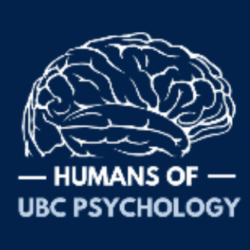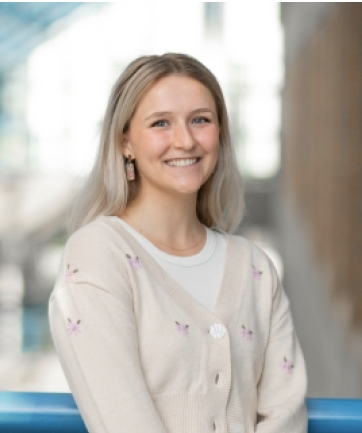Conducted January 2025
You are a part of a Developmental Health Lab. Is that part of a Clinical PhD program or Developmental?
I’m in Health Psychology. My lab focuses on aging and lifespan development, which is why it’s considered “developmental.” At UBC, aging research is situated within Health Psychology, not the traditional Developmental focus on individuals under 18. I’m in a quantitative program with a research focus, not a clinical program.
How many years have you been studying post-high school?
By the time I finish, I’ll have completed a decade of schooling, plus a year I took off to work as a lab manager. I did four years of undergrad, and I’m currently in the fourth year of a six-year PhD program.
Completing a Master’s first was a great decision. It was a lower-stakes environment and less commitment, which helped me confirm that research was what I wanted to pursue. Grad school is very different from undergrad; it feels much more like a job with regular hours and fewer courses. Most of my time is spent on independent research—it feels like the start of a career.
What are your plans after your PhD?
That’s the million-dollar question! Ideally, I’d like to pursue an academic career. I love research and realized I also really enjoy teaching. I want to share the excitement of research with others. After my PhD, I plan to do a postdoc and aim for a faculty position. I also see myself doing research in a government or public health setting. Research is my primary focus; I just need to figure out the exact environment.
Why psychology?
I’ve been interested in brains and behavior since I was very young—around 12 or 13, I knew I wanted to be a scientist. I initially wanted to pursue clinical psychology, but I realized I was more interested in behavior and the theoretical worldview psychology offers. I was incredibly fortunate that the thing I thought I would enjoy was exactly what I ended up loving. The theories and worldview just always resonated with me.
Have you ever doubted whether you were on the right path?
I’ve never wavered in my interest in academia, but I did question my competence. There was a particularly terrible undergraduate research fellowship experience in a lab that was very male-dominated and toxic. My supervisor would put me on the spot, yell at me, and call in my peers to critique me. In that moment, I thought, “I’m too stupid to go to grad school. I can’t do this.” I was devastated.
Thankfully, an amazing mentor explained that this behavior was a pattern with that professor, not a reflection of me. His support reminded me that my passion and interest were enough. It’s so easy to internalize those experiences, but you have to push through with a bit of “delusional optimism.” Abuse of power in academia is sadly common, and it’s important to realize it’s not a reflection of your work ethic or competence. Now, as a graduate student, I feel fiercely protective of my undergraduates.
You got into a very competitive program. What made your application stand out?
First, there’s an element of luck—you need the right timing when a supervisor is taking students. When I applied, I was proposing research that was a slight departure from what my supervisor was already doing, but it happened to align with what she was hoping to develop in her lab.
What I’ve been told is that my enthusiasm and passion really stood out. Grades and scores are important, but what sways a supervisor is finding someone who is intrinsically motivated. Grad school is a long process, and they want someone who is excited about the work and can push through the tough times. That passion made a difference.
Would you say that you were able to achieve a better work-life balance in grad school?
Absolutely. Taking a year off before grad school gave me time to figure out who I was outside of academics—to develop hobbies and an identity not tied to my achievements. Now, my work-life balance is much better because I’m not willing to sacrifice the things I enjoy. I’ve found that I’m actually more productive because I take time to recharge. If I’m stuck on a problem, stepping away—to crochet or watch reality TV—allows my brain to process it in the background. My supervisor respects that, and I try to keep my work schedule like a 9-to-5 job. Routine is crucial for maintaining a consistent pace through grad school.
What’s a typical day in the life of a PhD student?
I’m a morning person, so I usually wake up around 7 – 7:30 am and start with a slow “ramp up”—coffee, news, and Duolingo. By 8:30 AM, I start with less cognitively demanding tasks like emails. I make a to-do list, write every day, and chunk out my time for reading papers in between meetings. I end my day with a “ramp down” of simpler tasks like formatting emails. The goal is to keep regular hours, because it’s the only way to manage the long process of grad school.
What’s something about grad school that surprised you?
I was shocked by how much flexibility and control I have over my own schedule. It’s much more flexible than undergrad. It truly feels like a job, and people treat it that way. I was also surprised by how much easier it was to establish a work-life balance and just have fun without feeling guilty. Also, I haven’t had a single exam since graduating from undergrad—the focus is more on writing papers and engaging with material critically, not memorizing theories.
What’s the most rewarding part of your experience?
On a personal level, publishing work I’m proud of is rewarding. But the most rewarding part is mentorship. Seeing my directed studies and honors students, like Olive, go on to pursue grad school and do cool things is humbling and incredibly special. I had amazing mentors as an undergrad, and now I like to think I’m someone’s “Alyssa” (my former grad student mentor). Being around motivated people and helping them find answers to their questions is what makes this job so cool.
If you could go back and give one piece of advice to your undergrad self, what would you say?
Chill out. Relax. Focus on school, but don’t stress so much. If I could go back, I’d tell myself, “Take Friday nights off.” I don’t care what you do on Saturday or Sunday, but Friday nights are for you. After lectures or class, don’t open your laptop unless it’s for a movie. I wish I could have done that. You need those six hours to yourself, followed by a good, long sleep. That would’ve been the most helpful advice at the time. Chill out in all aspects. Also, don’t pressure yourself to have everything figured out. Things change. I thought I’d be a cognitive neuroscientist but found a different path—and that’s perfectly okay. You don’t need to know your PhD thesis in your first year; most people change their research focus between their Master’s and PhD. Don’t be so rigid—just chill. I know I would’ve brushed that off in undergrad, but it would have been incredibly helpful advice.
Interview conducted by Lily Moteva & transcribed by Jessica Li



